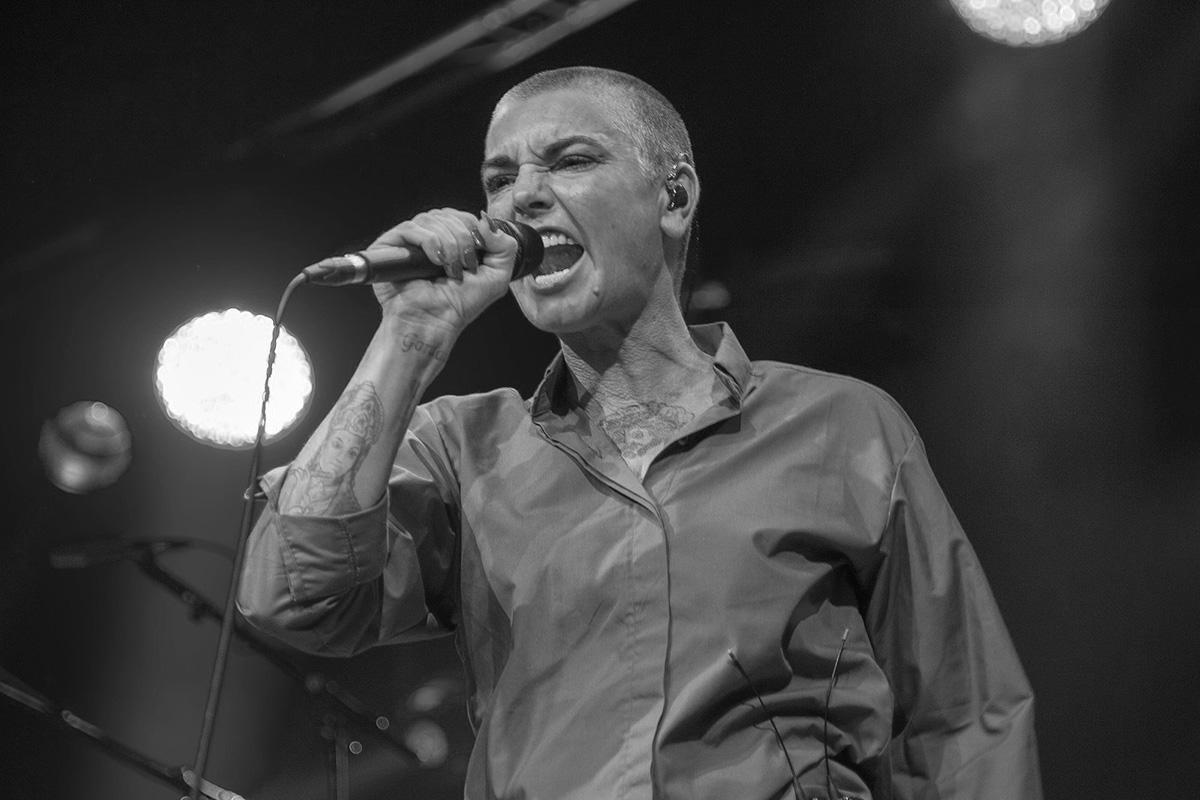
Acclaimed Irish singer Sinéad O’Connor passed away in her London home on July 26, 2023, at age fifty-six. The cause of her death is unknown, but according to BBC News, police are not treating her death as suspicious. O’Connor is most known for her cover of Prince’s “Nothing Compares 2 U” and her history of activism.
O’Connor was born Sinéad Marie Bernadette O’Connor on December 8, 1966 in Glenageary, Ireland to her mother, a dressmaker, and her father, an engineer. She had a notoriously troubled childhood and detailed the abuse she suffered at the hands of her parents in multiple interviews and in a 1993 open letter in the Irish Times.
When O’Connor was 15, she spent 18 months at a Magdalene asylum ran by the Order of Our Lady of Charity, due to her shoplifting and truancy. Though she was under strict control, O’Connor’s time there unexpectedly allowed her to develop her music and writing. She was discovered by Paul Byrne’s sister, who heard O’Connor singing Barbra Streisand’s “Evergreen” while he was volunteering at the institution. Byrne’s band, In Tua Nua, thought O’Connor was too young to join them, which led her to place an ad in Hot Press in 1984, after which she formed the band Ton Ton Macoute.
O’Connor’s time with Ton Ton Macoute led her to be signed by Ensign Records, launching her meteoric solo career. Her debut album, The Lion and the Cobra, was released in 1987 and earned her a Grammy nomination for Best Female Rock Vocal Performance, setting the tone for the acclaim she would soon receive.
O’Connor’s second album, 1990’s I Do Not Want What I Haven’t Got, included “Nothing Compares 2 U,” which skyrocketed to the top of the charts around the world and cemented her as a global phenomenon. At the same time, she began to be known for her appearance – O’Connor shaved her head and wore clothing that was uncommon for a “pop star.” She was, in other words, not what people expected from a female singer, and the media made sure to let her know it.
O’Connor’s status as an untraditional singer was further cemented in 1992. She was wildly talented, and people loved her voice, but it soon became clear that she was not fond of being famous. For O’Connor, fame was merely a platform for her social and political voice.
On October 3, 1992, O’Connor appeared on Saturday Night Live as a musical guest. The day before her performance, she was granted permission to perform “Success Has Made a Failure of Our Home” and a rendition of Bob Marley’s “War,” with the latter replacing “Scarlet Ribbons.” O’Connor revised the song to protest the Catholic Church’s cover-up of its sexual abuse of children, subverting Marley’s intended protest of racism. Following the a capella performance, O’Connor presented a photograph of Pope John Paul II to the camera and tore it to pieces, imploring viewers to “fight the real enemy” before throwing the pieces at the camera.
The issue of child abuse was personal and of utmost importance to O’Connor, so much so that she sacrificed her place in the popular music scene. Following her infamous SNL appearance, she was personally condemned by the Defamation League, and the National Ethnic Coalition of Organizations used a steamroller to crush hundreds of her albums outside her record company’s building. On SNL the following week, Joe Pesci taped the shredded photo back together and threatened to smack her during his opening monologue. Frank Sinatra also called her a “stupid broad,” and she was vilified by many of her contemporaries and the wider public.
In 2010, O’Connor further clarified just how passionate she was about the issue, telling Mark Kelley that, “I knew there would be an aftermath.” She also explained that her act was viewed as “an abhorrent idea” in the United States, but only because Ireland knew about the Catholic Church’s crimes before other countries. It is worth noting that O’Connor’s appearance on SNL took place nine years before Pope John Paul II first acknowledged the abuse within the Church.
Though O’Connor’s career continued well after her SNL performance, it is no secret that it was permanently damaged. Her 2005 album Throw Down Your Arms was certified gold. Two years later, she released Theology and toured Europe and North America. In 2019, O’Connor sang “Nothing Compares 2 U” on The Late Late Show, her first live performance in five years. However, it remained clear that she had irreversibly sacrificed the popular success she achieved with her breakthrough.
In 2021, O’Connor announced that while her final album No Veteran Dies Alone would be released the next year, she would retire immediately. She later denounced her retirement by confirming a tour for 2022, though the tour was canceled and the album indefinitely postponed after the suicide of Shane, her 17-year-old son.

O’Connor existed in the music industry as an enigma. For the duration of her life, many people struggle to understand her, her disinterest in fame, and her performance on SNL. The 2022 documentary Nothing Compares follows her career and explores those topics, but O’Connor addresses them directly in her 2021 memoir, Rememberings, where she makes it clear that fame was never her goal.
“Everyone wants a pop star, see?” O’Connor writes. “But I am a protest singer. I just had stuff to get off my chest. I had no desire for fame.” This is was O’Connor crowning achievement – not her ethereal voice, her ferocious stage presence, or even the strength she exhibited despite the horrors she she endured. Instead, unlike nearly all performers, O’Connor refused to compromise herself for the fame, and the history books will remember her for it.
Article by Rowan Toke for The Untitled Magazine.


